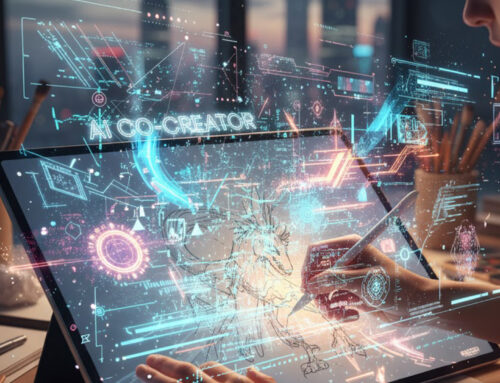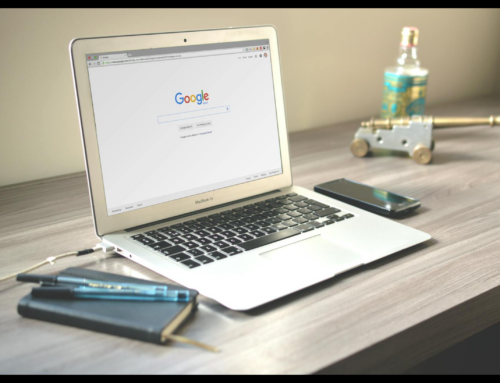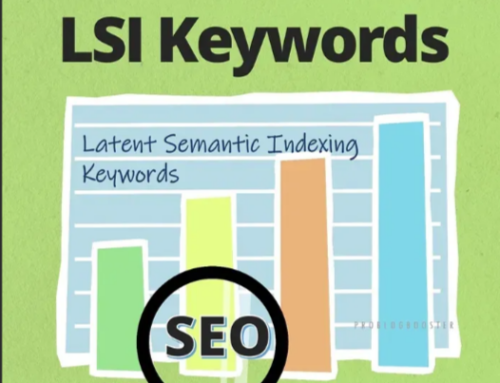Think about this for a second, what if your computer could tell your manager how well you’re doing at work, even before your manager asks you? That’s the power of AI at work today. Companies are now using artificial intelligence to track how employees work, find patterns, and even AI Predict Employee Performance who might need help or who’s performing the best.
Sounds cool, right? But at the same time, it also brings some serious questions, like will AI replace human judgment? Can AI Predict Employee Performance? Can it reduce stress? And what about privacy? Let’s break it all down in a simple way.
What Does AI Do in Measuring Employee Performance?
Work smarter, not harder. That’s what’s happening today with the rise of AI in offices. Imagine this: an HR manager at a growing tech company was drowning in review forms and spreadsheets. Then the team started using AI tools for employee performance management. These tools tracked performance data, gave real-time updates, and showed clear performance trends. The manager was surprised how easily they could now spot issues before they became big problems, all thanks to how AI Predict Employee Performance in real time. This is the role of AI: to silently work in the background and predict employee performance without all the paperwork. With the AI adoption rising, many companies are now implementing AI in HR to bring better visibility and save time.
In another company, one of the HR professionals shared how integrating AI changed everything for them. They used AI in HR not just to watch productivity but also to support employee development and boost employee engagement. They said AI in performance management helped create smarter management strategies based on real performance metrics. Even generative AI gave suggestions on learning courses for employees! It’s amazing how AI performance tools are now reshaping how organizations manage people. From AI in employee training programs to improving workflows, AI can help in so many ways. The benefits of using AI include better performance tracking, helping enhance employee abilities, and planning for future performance goals. So yes, leveraging AI is one of the best ways AI supports modern hr functions today.
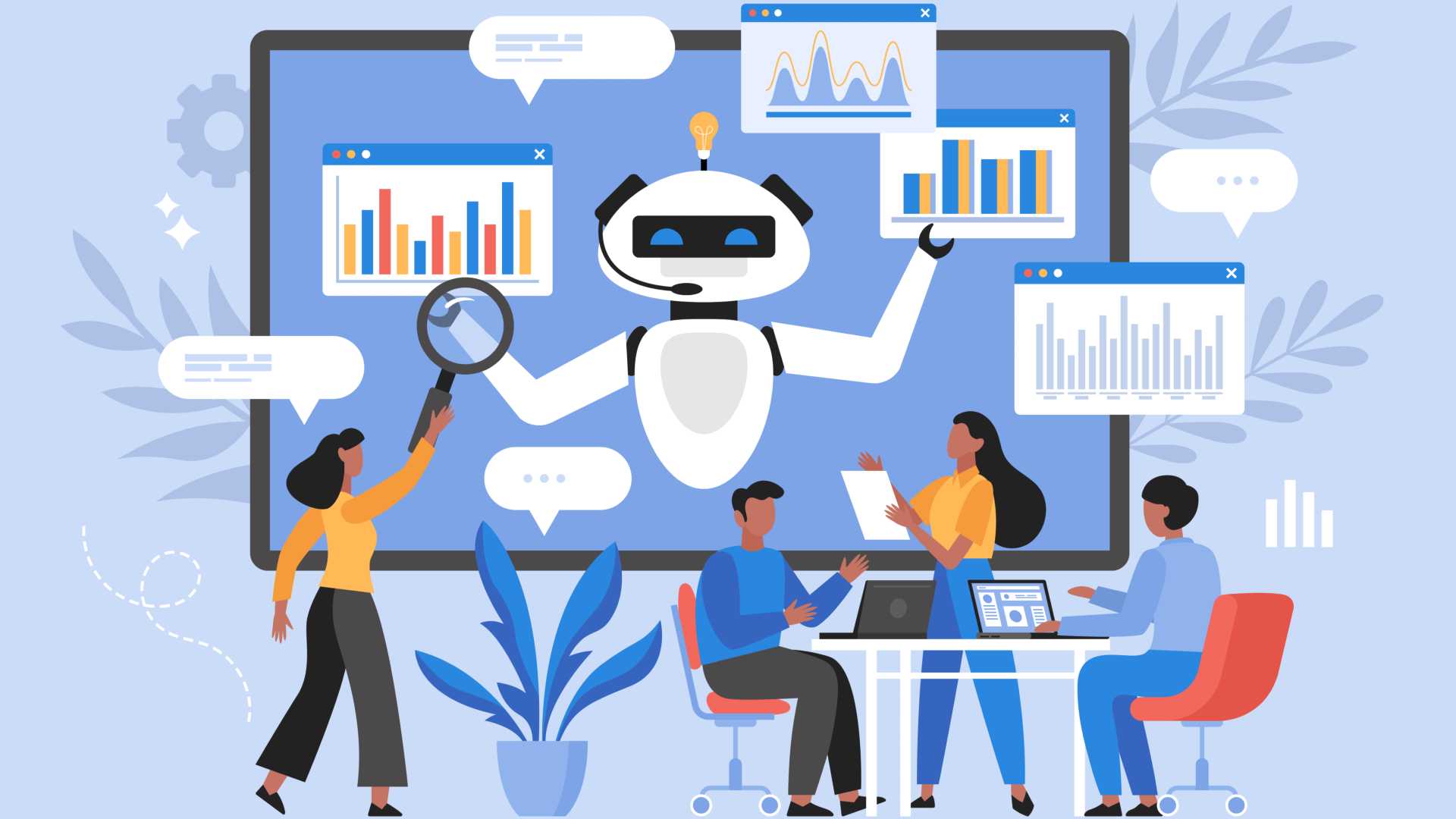
Can AI Replace Traditional Performance Reviews?
Traditional performance reviews usually happen once or twice a year. But by that time, either the feedback becomes outdated or the employee has already moved on from those problems. This is where AI steps in. With tools that AI Predict Employee Performance, collect daily data about work habits, task completion, and even how often someone gets distracted. Complementing this with tools like Leapsome’s employee engagement survey questions can provide deeper insights into team sentiment and engagement levels, making feedback even more actionable. With this data, managers can see real-time performance updates and give regular feedback.
Andrew Lokenauth, who is the Founder of TheFinanceNewsletter.com, shared- “I think AI tracks loads of data from how employees interact with work systems, like time spent on applications, speed of completing tasks, and even browser usage patterns, which gives you an idea on how productive someone is. I found that when I worked on a project in April, our AI system helped us see that employees who logged fewer distractions tended to meet their targets faster, so data like keystroke patterns and interaction frequencies paints a rough picture of productivity. It uses predictive models – fuzzy metrics, pattern detection, and sometimes machine learning – to spot trends that – in my view – we might miss when we rely on just human intuition. It’s not perfect but can spot warnings early when someone’s performance trends downward.”
Similarly, Emil Calangi, CEO of Topnatch Freight International Inc., also believes “AI can improve performance reviews, but it shouldn’t completely replace traditional methods. Automated systems can track productivity, highlight patterns, and provide real-time feedback. This makes evaluations more data-driven and less biased. The problem is that AI cannot fully understand the nuances of human performance. Numbers alone do not tell the whole story. A face-to-face review allows employees to explain challenges, give their own insights, and discuss growth opportunities in a way AI simply cannot. The best approach is combining AI-driven data with human judgment.”
How Does AI-Driven Analytics Help in Reducing Workplace Stress?
Workplace stress is very common—sometimes it comes from too much work, sometimes from working odd hours. AI can actually help here by noticing patterns that we may miss. For example, if someone is working late every day, AI can flag it and inform the manager, so they can take action before it turns into burnout.
Andrew gave an example- “I think AI analytics can really ease the pressure by flagging potential burnouts ahead of time. I remember in February when we set up a system that monitored work patterns and flagged when someone worked around 5–7 hours extra consistently – management could then balance workloads or offer support right away. Analytics help you spot peaks and troughs in work intensity early on, triggering intervention strategies that ease stress on employees. You end up with a better flow where you can cut down overtime tendencies and ensure that employee rhythms stay balanced. The system might flag an employee working too hard or report uneven task loads, so managers can step in before stress levels rise too high, saving you and the team from future crises.”
Emil also agrees with this. He says, “AI analytics can reduce workplace stress by identifying workload imbalances and spotting early signs of burnout. It can track work hours, task completion times, and response rates to suggest when someone might be overloaded. Managers can then adjust assignments before stress becomes a bigger issue. AI can also analyze communication patterns to see if employees are constantly working outside of normal hours. The goal is not just efficiency but maintaining a healthier work environment.”
Using AI Data to Reward Top Performers
You must have heard the saying, “Hard work pays off.” But in many offices, some of the best workers go unnoticed just because no one tracks things properly. That’s changing now. With tools that AI Predict Employee Performance, companies are starting to reward their top performers fairly and on time. Let’s take the example of a team leader at a fintech startup. The company started using ai technology last year, and it completely changed how they spotted talent. The system used AI algorithms to analyze huge amounts of data—like project speed, accuracy, and even team collaboration – metrics often found in real-world performance agreement examples.
This impact of ai made it easy for managers to find who was really contributing. By using predictive analytics, the HR team could now offer real-time feedback, gifts, bonuses, or training plans quickly and confidently.
Another example is an HR executive who shared how their company used machine learning and AI algorithms to leverage insights and optimize performance. These tools helped them unlock potential in employees and find hidden stars in the team. According to them, the use of AI gave their human resources team a clear metric to judge performance without any bias. Plus, it helped foster trust because employees felt seen and appreciated. The whole talent management system became more efficient and respectful of employee privacy, while also understanding things like emotional intelligence and skill gaps better.
That kind of insight is even more useful when you can connect performance signals to a live view of capabilities, such as tracking team skills and certifications, so HR can spot gaps and plan development.
Here are some key ways AI is helping companies streamline and transform how they reward good work:
-
AI can predict who is likely to succeed next month based on current trends
-
AI can provide suggestions for rewards or development plans in real-time
-
It helps reshape outdated review systems and makes rewards more timely
-
Managers can integrate AI tools into their existing performance management processes
-
It helps discover how AI can support better training and development programs
-
Most importantly, AI helps identify the people who truly move the company forward
With all this, it’s clear that AI is revolutionizing the way we handle people at work. Whether it’s spotting hidden talent or giving fair rewards, AI Predict Employee Performance tools are transformative in helping teams grow with trust and fairness.
Beyond bonuses, closing the feedback loop with tangible recognition matters. When AI flags consistent high performers or milestone achievements, HR can pair data-driven insights with thoughtful rewards like personalized gifts for corporate that reinforce values, celebrate wins, and strengthen engagement. Curated options aligned to team culture – from milestone plaques to desk accessories – make recognition timely and memorable, and can be integrated into performance workflows so managers never miss a chance to appreciate impact.
What Are the Ethical Concerns of AI-Based Employee Monitoring?
Now let’s talk about the biggest concern—privacy. While AI can be useful, it can also feel like a form of surveillance. If a system is tracking your every move, from keystrokes to browser activity, it can make people uncomfortable.
Andrew shared, “I think the ethical side of it all is pretty shaky. When you let AI track every keystroke or every click, that borders on surveillance and leaves many employees feeling like they’re under a microscope constantly. I was involved in a trial run last month, and some of my colleagues were jittery, worried their privacy might be compromised. There are also concerns about how the data gets handled – you might see biases creeping into the algorithms that unfairly target certain groups, and when personal data meets corporate goals, trust takes a hit real quick. Some questions about consent and transparency pop up too, and a lot of folks think it’s a slippery slope from monitoring productivity to monitoring every personal quirk online. Remember, data is powerful, but you gotta handle it with respect and clear rules, or risk breeding resentment among your team.”
Emil also points out that privacy is a big concern. Says- “One major concern with AI-based monitoring is privacy. If employees feel like they are under constant surveillance, it can create an unhealthy work culture. There is a fine line between using AI to improve productivity and making people feel like they are being micromanaged. Transparency is important. Companies should clearly explain what data is being collected and how it will be used. Monitoring should focus on improving workflows and supporting employees, not just tracking every move they make.”
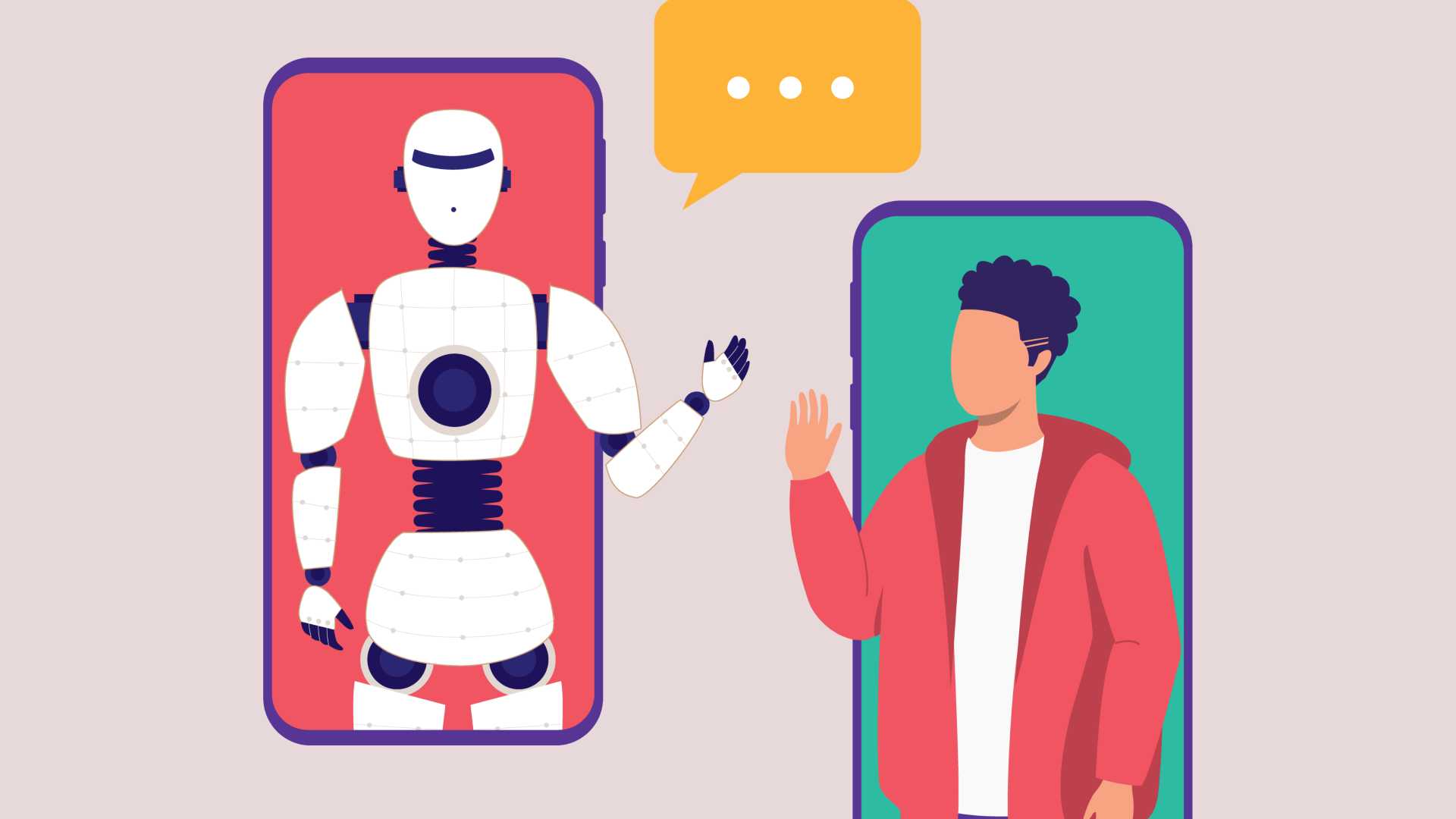
The Future of Employee Tracking and How AI Predict Employee Performance
The future belongs to those who prepare for it today. And in the workplace, that future is quickly being shaped by smart technologies. Just last year, a senior manager at a growing IT firm started noticing how their hr teams were struggling with traditional tracking systems. That’s when they moved to AI-powered tools. These tools had the ability to analyze behaviour patterns, work speed, and collaboration habits. They could even analyze employee data in seconds and give suggestions based on predictive capabilities. This helped the team to not only monitor but also plan better for future outcomes. It became clear that AI Predict Employee Performance is not just a trend—it’s a smarter way to run teams.
Let’s look at another story. An HR professional said that adopting hr tech changed how they looked at the hiring process, learning and development, and daily hr processes. Earlier, reviews and tracking were done once a year. But now, with generative tools and vast amounts of data, their system works almost daily in the background. These tools give hr leaders a better and more nuanced view of employee behavior—something human eyes may miss. It’s like having a smart assistant that never sleeps, helping AI Predict Employee Performance every day.
Here are some exciting things happening in this space:
-
Smart systems now support the future of work with regular updates on staff performance
-
AI tools offer predictive capabilities that help spot trends early
-
These tools support both HR teams and managers with clearer reports
-
The ability to analyze and understand vast amounts of data saves time
-
Learning and development plans can be adjusted in real-time
-
The full hiring process can be improved with AI-powered suggestions
The way forward is clear, AI Predict Employee Performance tools are changing how we understand our teams. With better tracking, smarter analysis, and more humane decision-making, we are all moving toward a better, balanced, and more thoughtful future of work.
